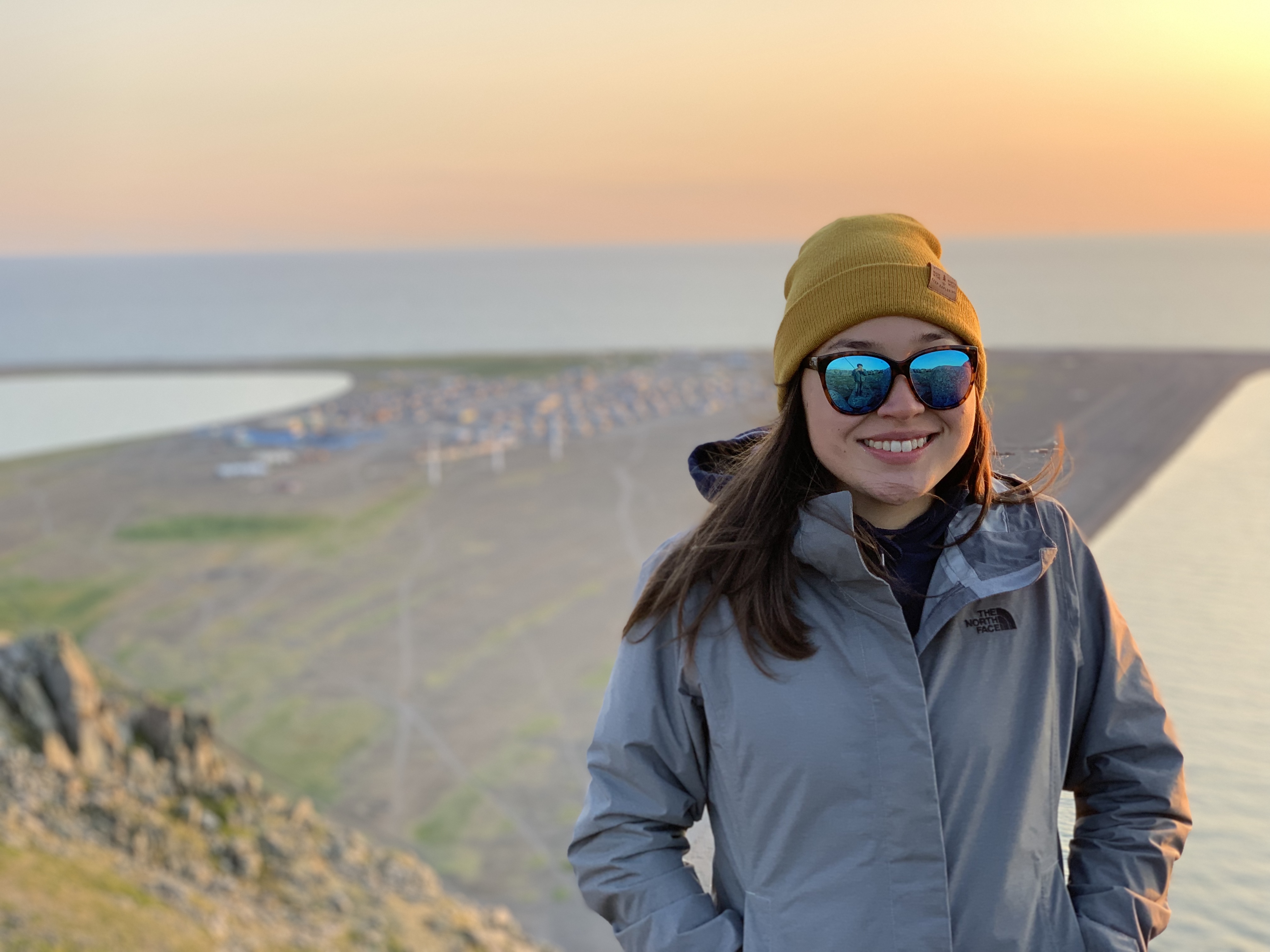5 Things to Know About Being a Poll Worker and Protecting the Right to Vote
Aug 29, 2024
Protect the Right to Vote: Be a Poll Worker on Election Day Sign Up Today
 Alexis Aqavzik Rexford is a summer fellow with Alaska Youth for Environmental Action (AYEA), a program of the Alaska Center Education Fund, LCV’s state affiliate in Alaska. Alexis is Siberian Yupik & Iñupiaq from Gambell (Sivuqaq), Alaska. She is currently an undergraduate at Alaska Pacific University pursuing a B.S. in Environmental Public Health and is passionate about advocating for Indigenous rights and environmental justice.
Alexis Aqavzik Rexford is a summer fellow with Alaska Youth for Environmental Action (AYEA), a program of the Alaska Center Education Fund, LCV’s state affiliate in Alaska. Alexis is Siberian Yupik & Iñupiaq from Gambell (Sivuqaq), Alaska. She is currently an undergraduate at Alaska Pacific University pursuing a B.S. in Environmental Public Health and is passionate about advocating for Indigenous rights and environmental justice.
This week, her passion was front and center when she spoke at the roundtable discussion following the rollout of the House Select Committee on the Climate Crisis’ comprehensive climate report. Read her full speech below:
Whanga Alexis Rexford. Atepika Aqavzik. Sivuqaghhmiinguunga. Naaka Kemliinganguuq. ataka delbert rexford-gnuuq Utqiagvi-meng. Aymaramkemiinguunga.
Hello everyone! I am Alexis Rexford, my Siberian Yupik name is Aqavzik. I am from Gambell, Alaska; a Siberian Yupik community located on Saint Lawrence Island AND it is traditionally known as Sivuqaq. My mother is the late Darlene Apangalook and my father is Delbert Rexford from Utqiagvik. I am from the aymaramka clan of Sivuqaq.
I’m grateful for this space to share my experiences in navigating the climate crisis as a young indigenous woman, and today I am speaking to you from my ancestral homeland, the Inupiat lands of Utqiagvik, Alaska.
I’ll start off by saying that it is not easy. I interpret the climate crisis in two very different world-views. The first view being a Siberian Yupik and Inupiaq person. JUST Within the short amount of time I’ve lived in Gambell, I witnessed the devastating impacts of this existential crisis. We have seen drastic changes in sea ice patterns, land erosion, and mass bird die off. I live in constant anxiety for the day that our people are unable to harvest the foods that keep us and our culture alive and healthy. I fear the day that we will be forced to relocate from our sacred settlement. The anxiety is widespread and it is the reality within our communities.
The second view is actually studying the climate crisis as an Environmental Public Health student while our people are disproportionately affected and our rights to environmental justice are violated. Growing up in Gambell, my culture has taught me more about sustaining the Earth than any biology textbook. The siberian yupik, alongside other Indigenous peoples have lived in union with the Earth’s natural cycles since time immemorial by practicing our “subsistence” lifestyles. Did you know that the word subsistence is a colonial term that is defined as, “the action or fact of maintaining or supporting oneself at a minimal level.” This Western ideology of rich Alaska Native cultures is deceiving. We do not just merely survive off of the land, we live and breathe with it. What happens to the land happens to us. We rely solely on the environment for sustenance and possess generations worth of ecological knowledge.
My late Grandfather, Leonard Apangalook, a life-long hunter, knew that the natural cycles of the Earth were changing by observing sea ice AND weather patterns, as well as animal behavior. He documented decades of environmental deterioration by recording daily weather records and worked closely with climate scientists.
While Global climate movements spread messages of “unite behind the science”; they fail to recognize Indigenous knowledge as a form of science. Traditional ecological knowledge is profoundly underrepresented in climate research; So I ask you to amplify Indigenous voices in social institutions and spaces regarding environmental justice. The knowledge implanted within Indigenous cultures is an invaluable resource that can drive a just transition toward a sustainable economy. Alaska is on the frontlines of this climate crisis yet we are forgotten in national
discussions. We ask you to follow the leadership of Indigenous Alaskans who are putting forth solutions and for the federal government to support us.
Igamsighaghalek
Thank you
Watch the entire House Select Committee on the Climate Crisis roundtable discussion here.